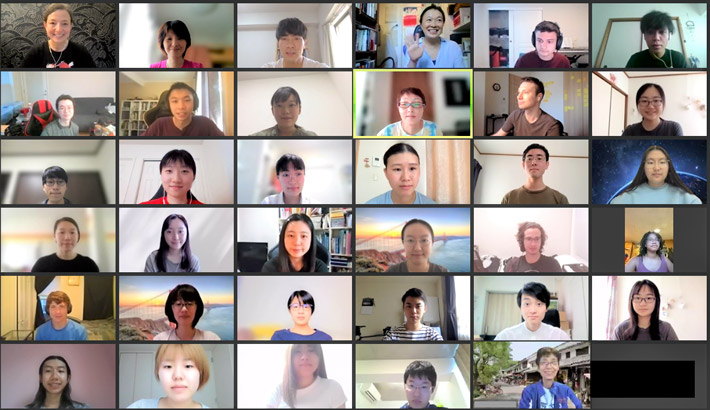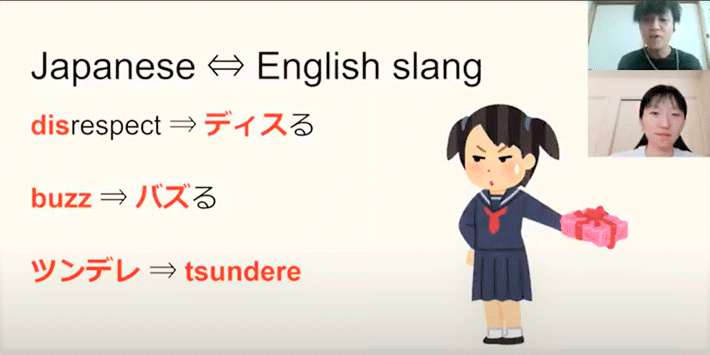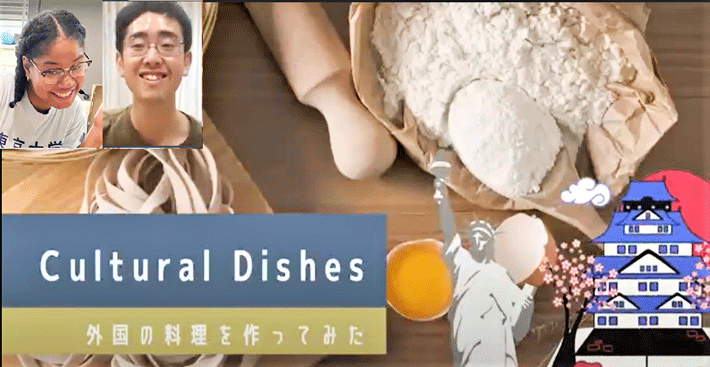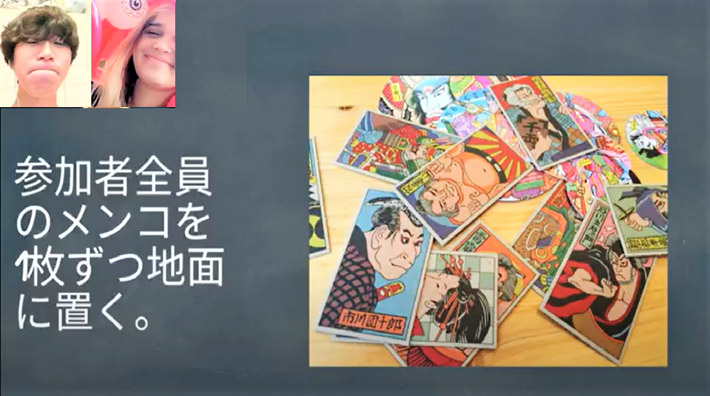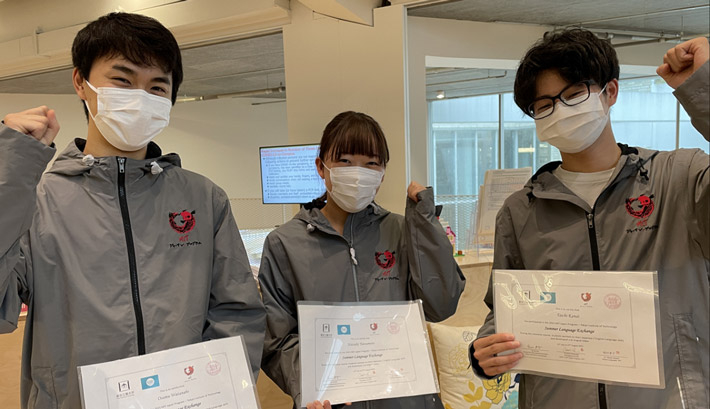The language exchange program was conducted in a virtual environment for the second straight year due to mobility restrictions caused by COVID-19. This year, the number of applicants at Tokyo Tech exceeded the limit in just one day after calls for participation began, perhaps due to the positive feedback from last year's participants. There were several repeaters from both universities who joined both last year's and this year's program.
In this virtual language exchange program, students from Tokyo Tech and MIT Japan were randomly matched, and 22 groups were created. The objectives were to 1) develop communication skills in a second language, that being either English or Japanese, and 2) understand different cultures and ideas, and broaden perspectives through language exchange.
After the plenary introductory session on July 15, each group held online language exchange sessions at least three times after adjusting to the 13-hour time difference between Tokyo and Boston. Each exchange session lasted approximately one hour, with 30 minutes in one language and 30 minutes in the other. Many groups met more than three times, which was the minimum requirement for the language exchange program.
After language exchange sessions, each group created a short movie about what they had learned about their partners' countries. Each group selected various topics such as differences in school life, university systems, cooking, recommended travel plans, dialects, sports, movies, music, linguistics, and traditional games. As the student movies were created freely without any instruction, each group produced unique and interesting output using diverse techniques in recording and movie editing.
On August 26, one month after the individual language exchange sessions, participants again gathered online for the final session. A movie digest compiling all of the movies by the 22 groups were shown, and each participant made a short comment in their second language. After voting, three prize-winning groups were selected. The winning themes were 1) expressions in Japanese and English, 2) cultural dishes 3) differences between games in Japan and the US.
According to the feedback from participants, all students would recommend this activity to their friends. It was a good opportunity for them to learn from each other through an equal balance of "teach and learn." Even after the completion of the program, students from MIT and Tokyo Tech may meet online regularly and conduct language exchange. Many students commented that they enjoyed meeting new friends from other countries and exchanging ideas about the same topics in Japan and the US while practicing communication skills in a second language.
. Any information published on this site will be valid in relation to Science Tokyo.


